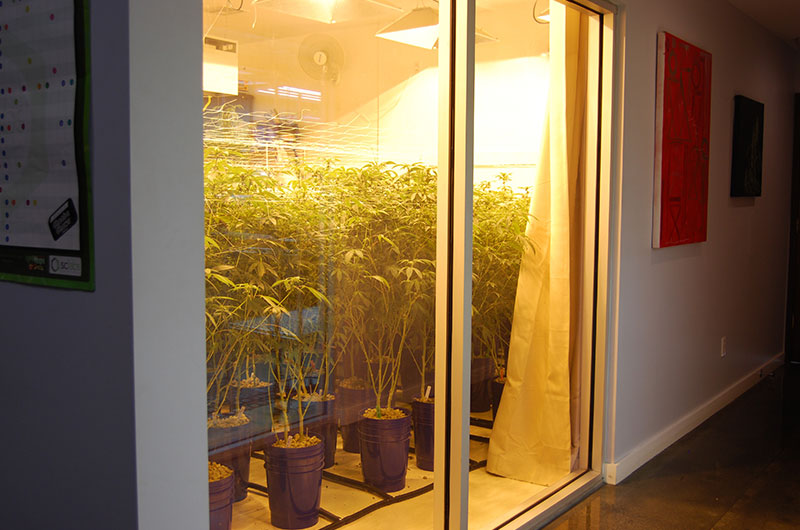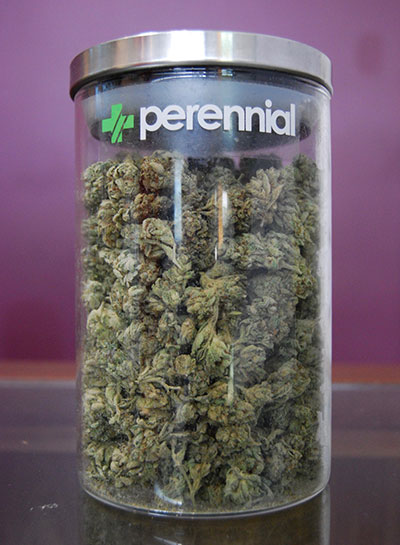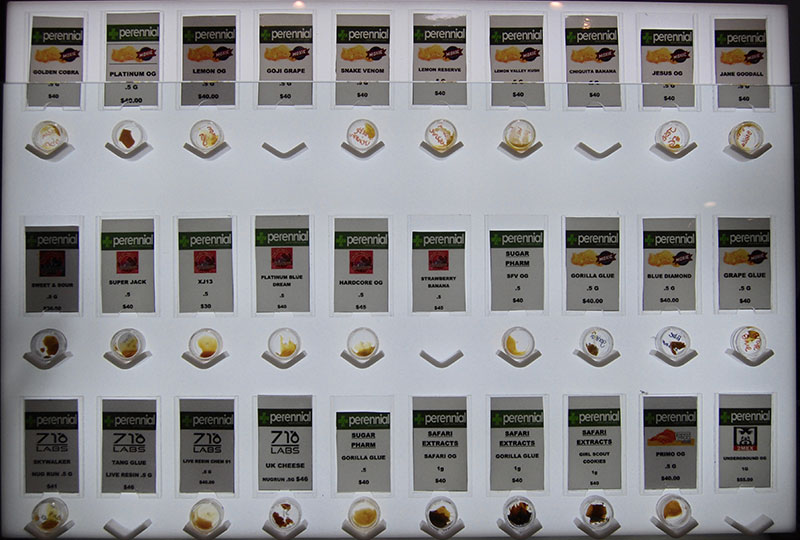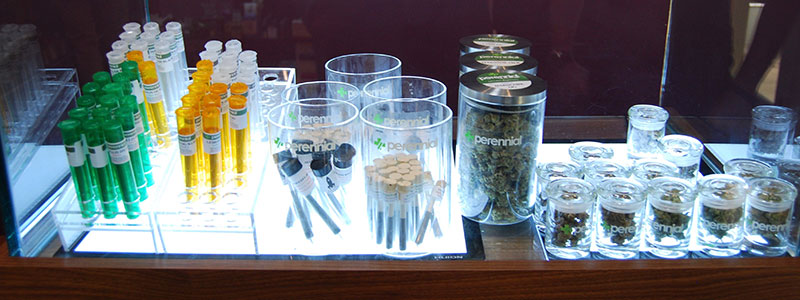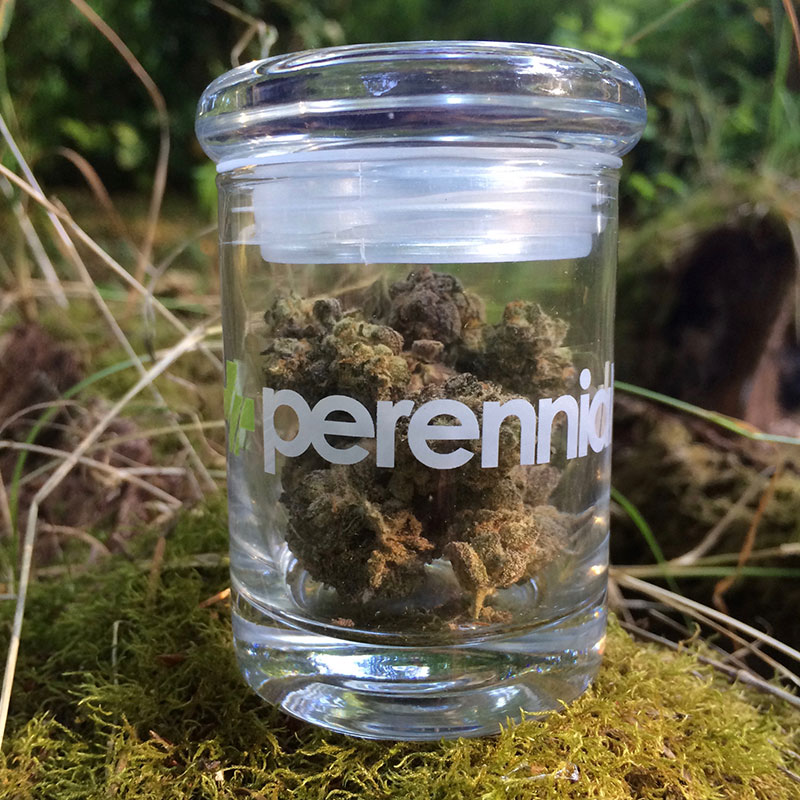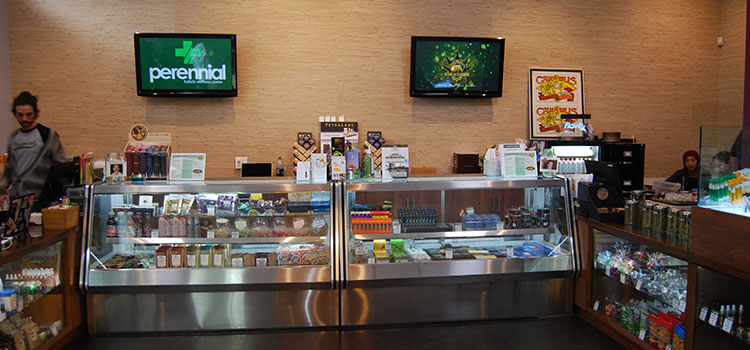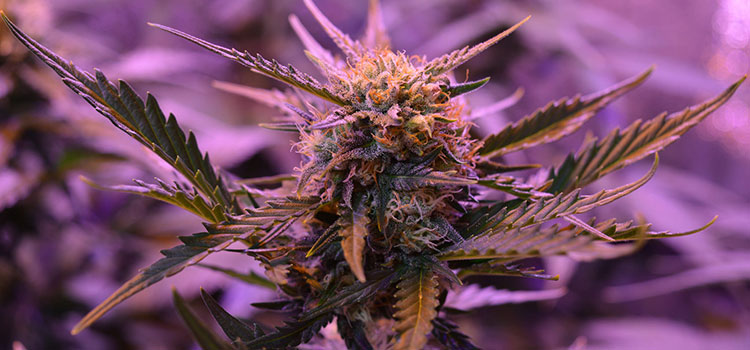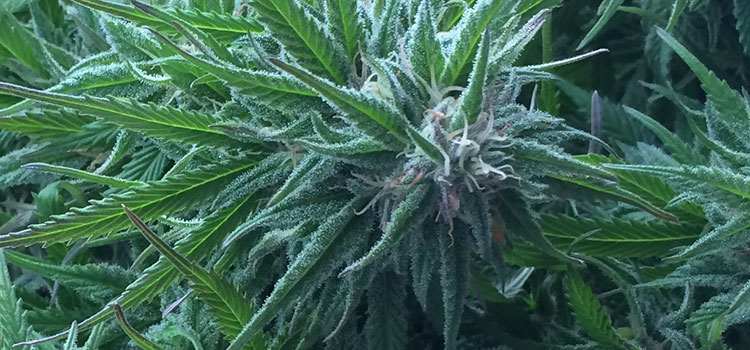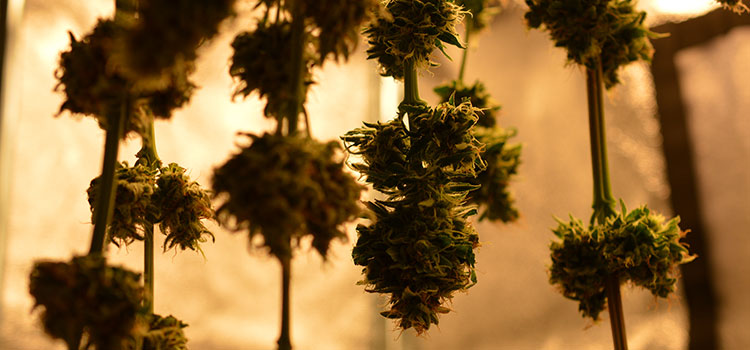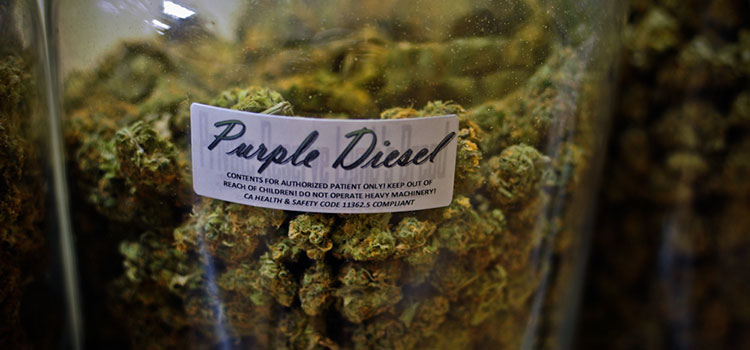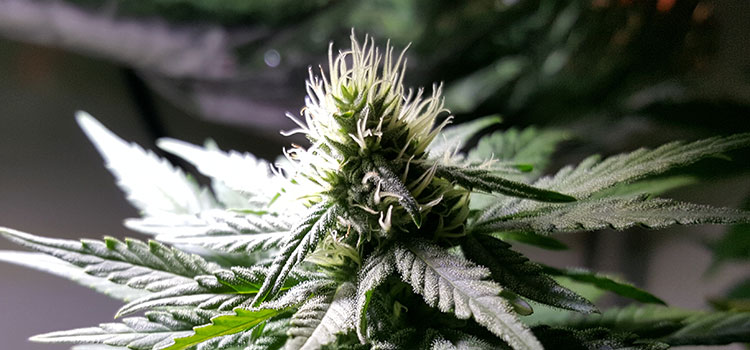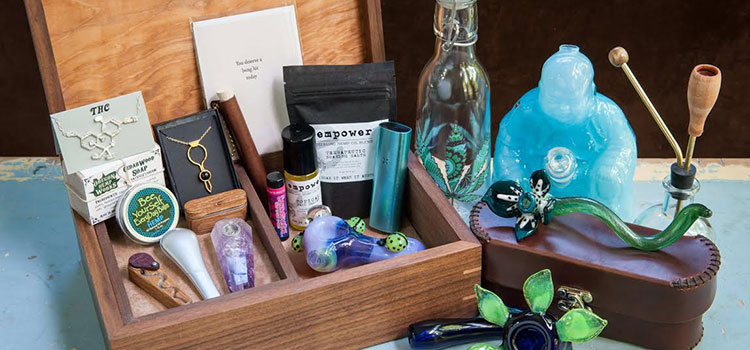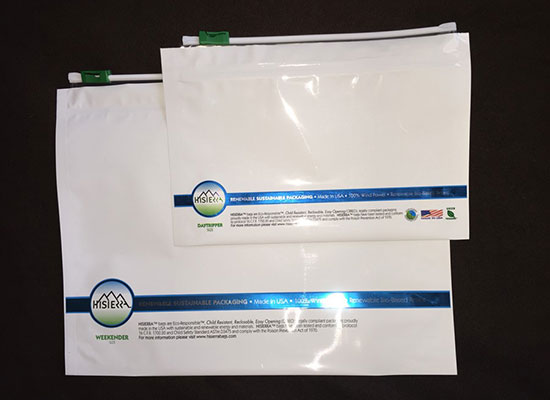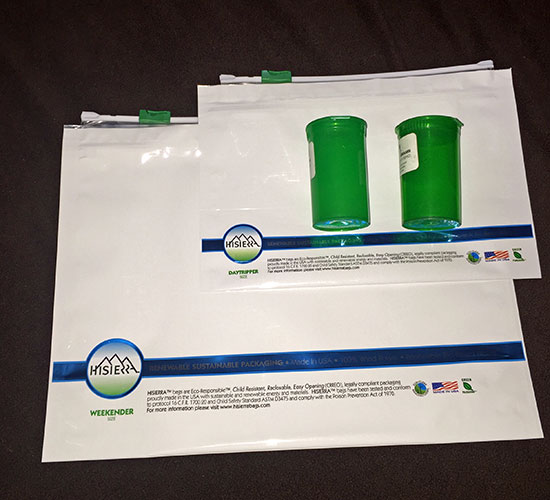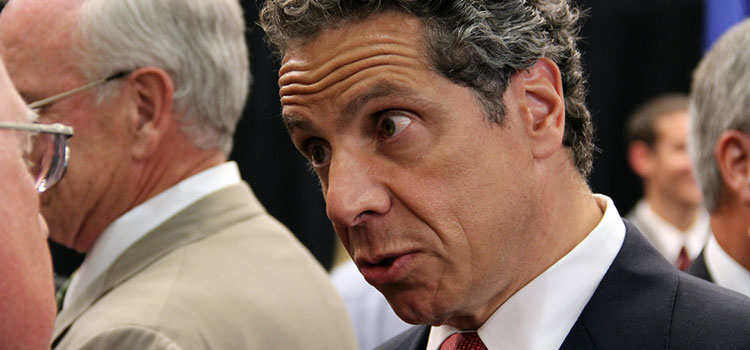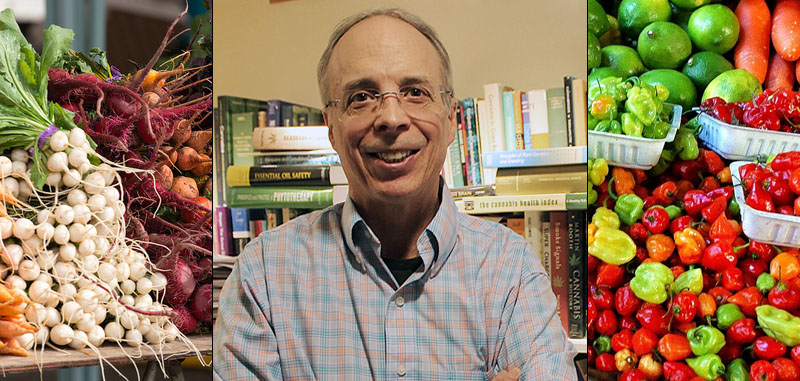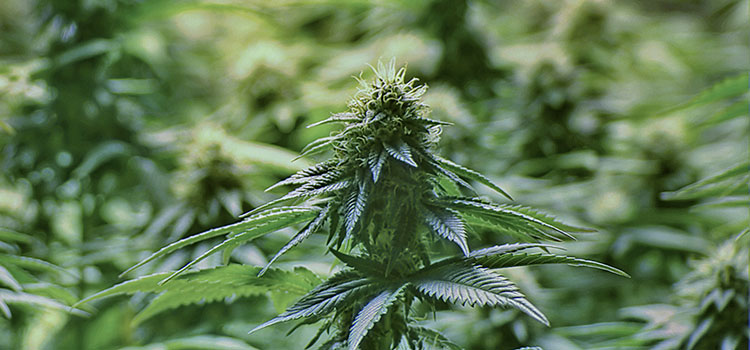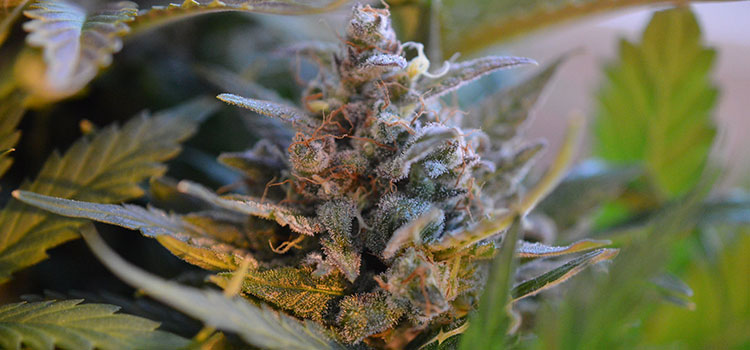In this week’s podcast episode, Dr. Ethan Russo — one of our earliest and most esteemed guests — returns to the show to discuss his latest article, “Beyond Cannabis: Plants and the Endocannabinoid System.”
Dr. Russo is a neurologist and psychopharmacology researcher, and is the former Senior Medical Advisor for GW Pharmaceuticals. He worked as a clinical neurologist in Missoula, Montana for 20 years, where much of his practice focused on the treatment of chronic pain. Today, Dr. Russo is one of the world’s leading researchers in the field of cannabis terpenes and the endocannabinoid system. He has authored several books about cannabis, cannabinoids, pharmacology, and rare botanicals, and he has published over 30 articles covering neurology, pain management, cannabis, and ethno-botany.
Listen along, or read the transcript below, as Dr. Russo and Ganjapreneur podcast host Shango Los discuss how various foods — including black pepper, kava, the common carrot, and more — can actually help balance the cannabinoid levels in your body.
Subscribe to the Ganjapreneur podcast on iTunes, Stitcher, SoundCloud or Google Play.
Listen to the podcast:
Read the transcript:
Shango Los: Hi there, and welcome to the Ganjapreneur.com Podcast. I am your host, Shango Los. The Ganjapreneur.com Podcast gives us an opportunity to speak directly to entrepreneurs, cannabis growers, product developers and cannabis medicine researchers all focused on making the most of cannabis normalization. As your host, I do my best to bring you original cannabis industry ideas that will ignite your own entrepreneurial spark, and give you actionable information to improve your own business strategy and improve your health and the health of cannabis patients everywhere.
Today, my guest is Dr. Ethan Russo. Ethan Russo is a neurologist, psychopharmacology researcher and former Senior Medical Advisor to GW Pharmaceuticals. He served as study physician to GW for three phase three clinical of Sativex. He graduated from the University of Pennsylvania and the University of Massachusetts Medical School before residencies in pediatrics in Phoenix, Arizona and in child and adult neurology at the University of Washington in Seattle. He was a clinical neurologist in Missoula, Montana for 20 years and a practice with a strong chronic pain component. In 1995 he pursued a three month sabbatical doing ethno-botanical research with indigenous peoples in Peru. He is currently past President of the International Cannabinoid Research Society and is former Chairman of the International Association of Cannabinoid Medicines.
He has authored several books on cannabis, cannabinoids, pharmacology, and rare botanicals and has also published over 30 articles in neurology, pain management, cannabis, and ethno-botany. You can see his full lists of books and credits at the Phytecs website where he is presently Medical Director. To those of you who study his work and seek out his mentorship, he is the godfather of cannabis terpene research as well as a leader in research and popularization of the endocannabinoid system. Welcome back to the show, Ethan.
Dr. Ethan Russo: Well, thank you, it’s great to be back.
Shango Los: For those of you who are unfamiliar with the endocannabinoid system, you may want to hit pause and go back and listen to podcast episode number three where we speak with Dr. Russo about the endocannabinoid deficiency and he talks a lot about the ECS itself. Also, you might want to check out our recent episode with Dr. Greg Gerdeman on the popularization of the endocannabinoid system in human culture.
Today, we’re here to talk about Dr. Russo’s new article recently published in Trends in Pharmaceutical Science entitled “Beyond Cannabis: Plants and the Endocannabinoid System.” Ethan, with all of that, let’s start with a really solid basis for our discussion. For the folks who are not familiar with endocannabinoid system, yet, will you just give us a brief summary to kind of get them on the same page.
Dr. Ethan Russo: Sure, I’d be happy to. The endocannabinoid system, as one can tell from the name, was named after cannabis. This has to do with the fact that the main psychoactive component of cannabis, tetrahydrocannabinol or THC affects the system. One might first wonder, how long it would have taken to discover this system if cannabis were not around. In any event, for a long time after THC was first characterized in 1964, it was thought that it worked by altering some membranes in the brain, something like the way that alcohol works, but, in fact, it turned out that THC works on a receptor called CB1 — that’s for cannabinoid-1. That’s the main psychoactive receptor in the brain.
Some of the effects that THC has in making a person feel high, in reducing pain, affecting nausea and things like that, some of these things are mediated through this CB1 receptor, but, there’s also a CB2 receptor, cannabinoid-2. This one can occur in the brain under conditions of injury or inflammation, but, it’s mainly out in the body where it’s known as an immunomodulatory receptor. It has to do with immune responses, inflammation, and pain. But, those receptors are only one component of what’s called the endocannabinoid system. A few years later, somewhere in the early 90s, it was discovered that there were endogenous cannabinoids. Endogenous means within. It turns out that there are substances in our body that are THC-like, that work on these receptors, CB1 and CB2. The first one that was discovered was called anandamide. That’s taken from the Sanskrit word for bliss and the second is called 2-EG, 2-Arachidonoylglycerol, and both of these will stimulate the cannabinoid receptors.
Then, we have the receptors, we have the endogenous ligands, the chemicals in our bodies that work on the receptors and then the third component of the endocannabinoid system are the enzymes that make these endocannabinoids and break them down. We have this triad then, called the endocannabinoid system.
What does it do? I’ve already mentioned that this is very prominent in the brain. The main activity there is in regulating neurotransmission. I think most of the audience has probably heard of neurotransmitters. These would be things like acetylcholine and norepinephrine. They are the chemical signals in the brain from one nerve cell to another.
What CB1 does in the brain is inhibit the release of neurotransmitters. Let’s say, for example, someone has chronic pain, too much pain. That often goes along with an excess of a neurotransmitter called glutamate, which is stimulatory. If we have THC or anandamide that stimulates CB1 receptor will reduce release of glutamate and often act to reduce the pain. This is just one example.
However, although things started there, in terms of research, it turns out that the endocannabinoid system is a major homeostatic regulator of almost every physiological function in the body. I realize that’s a mouthful. Let’s break it down. Homeostasis is balance of function. What the endocannabinoid system will do in any given area of the body whether it be the brain, hormonal balance, appetite, digestion, is try and bring things back into balance.
In other words, if there’s too much of a neurotransmitter, stimulation of the endocannabinoid system will bring that down back into the range where it should be. In contrast, if there’s too little activity in the system, stimulation of the endocannabinoid system will bring it up back into balance. Almost any function of the body you can name is effected by the endocannabinoid system and it really points out the reason that cannabis is such a versatile medicine for so many conditions that are otherwise very hard to treat with conventional medicines.
Shango Los: I was thinking about that. The way that it regulates the system, it reminds me a lot of this vocabulary word that my acupuncturist used all the time from Chinese medicine that it tonifies the system. If you’ve got an excess, it brings it down to optimum, and if you’ve got too little, it brings it up to optimum, so that essentially, we’re creating, we’re feeding a regulator for our bodies, so if the ECS is healthy, all of these other systems will be healthy as well.
Dr. Ethan Russo: I think that’s quite appropriate and there are many parallels between some of the concepts in traditional Chinese medicine and some of what the endocannabinoid system does, right.
Shango Los: Up until now, your paper talks about how to feed and care the endocannabinoid system with food sources that are non-cannabis. This is a pretty big deal to everybody because up until now, we have been supplementing our endocannabinoid system, which is cannabinoids that are made in the body endogenously, with cannabinoids that we have been getting from cannabis, things like cannabidiol and actually most of the parts of the plant fall into that category, and now the idea that we can go to food sources for it is something that’s got people really excited, because not only is cannabis not easily available everywhere, but also, it certainly has a price point that’s higher than most foods. Your new paper suggests that these can be gotten from food sources. Why don’t we pick one category of cannabinoid and talk about the food sources that it is present in.
Dr. Ethan Russo: OK, we can start off with CB1. I’m sure that many of the listeners are interested in what plants outside of cannabis might have similar effects. Actually, it’s a short list there. If we look at CB1, which is generally of most interest to most people, way back about 2000, I was interested in the possibility of looking at some other plants that affected the CB1 receptor like THC does. We looked at salviadivinorum. It’s sort of a long story, but, we were interested in salvinorin A, which was clearly the most active molecule in that plant. We didn’t get any binding to the CB1 receptor, but interestingly, there was something else in the extract of the plant that seemed to work at that receptor. Along about that time, it was discovered that salvinorin A works on another receptor called the kappa-opioid receptor, and that its activity seemed to derive from that. Subsequently though, some other people looked at salvia again, and there is a relationship there that still is being worked out.
Another one that might be quite odd to people is the common carrot, daucus carota. It actually has a substance in it called falcarinol. This actually seems to have an antagonistic effect on the CB1 receptor.
That’s odd. What would it do? While most CB1 antagonists would reduce hunger and produce some other effects of that sort, but the main importance of this molecule is that if one were handling carrots at the same time that there was histamine around, it’s possible they’d get an allergic reaction. As a doctor, I don’t remember a lot of people getting a rash from carrots, but this is a possibility.
More interesting, I think, is another plant that may stimulate the CB1 receptor. This is piper methysticum, better known as kava. Kava is an interesting substance. This is made from a root of a plant that grows in the South Seas, so it’s common in Polynesia. This is pounded and mixed with water, and it makes a gluey sort of drink that is used as a method of relaxation. Typically, it doesn’t have alcohol, and we had an idea in the past of how this worked on a different set of receptors called gaba. It turns out that a few years back, it was noted that one component of it called yangonin seems to work on the CB1 receptor, and, traditionally, in a traditional dose of kava there may be enough to really affect things. Occasionally, people will say that they feel high in relation to kava, not just relaxed, but, again, this is a relatively recent discovery and needs to be examined more thoroughly.
I’ll mention one other in this category, and this is an unusual one also, this is in liverworts. This is a kind of primitive plant. There are two that have been described, the one from Japan and one from New Zealand. The one from New Zealand is called granular marginata. These particular liverworts have two substances in them that look like cannabinoids. One is called perrottetinene and the other, perrottetinenic acid. This was originally described about 20 years ago, and the author said, “they called them cannabinoids, but, interestingly, at that time, they didn’t test them for activity.” Recently, one of my colleagues, Juerg Gertsch in Switzerland has confirmed that these do act on the CB1 receptor.
Unfortunately, his paper is not yet published, so we can’t get more details. I will say this though, in relation to these plants, there are some … reports that people will find on the internet and they’re odd because some people say that they really got high from smoking this material, and others will say that it didn’t do anything. I’m not sure I can recommend that people experiment with this. It’s not necessarily healthy to try and smoke liverwort. Hopefully we’ll have more details on that. That’s one category.
Shango Los: Let’s unpack two of those. The salvia is around but hard to get for some folks, but, carrot and kava are both really common. Carrot you can just buy at any grocery store, and the kava kava you can get at most herbalists. I’ve got a tincture of kava right here on my desk. When I take it, it does have a relaxing effect to my human. I feel a certain amount of muscle relaxant and a little less care in the world, but, I don’t get that from eating carrots. How can we think about the right manner to ingest, and how does a normal person know the volume, or, is it just simply, “hey, eat more carrots and make yourself some kava kava tea occasionally, and you’re going in the right direction.” How can this help a common person to help their ECS using these?
Dr. Ethan Russo: Right, well, let’s go to the carrot first of all. I would remind listeners that this is actually antagonistic of the CB1 receptor, so, no one is going to get high from carrots. Similarly, it’s really unclear whether this falcarinol is active orally. We don’t know if it gets into the brain. I’ve never heard of anyone eating a carrot and having it reduce their hunger. Additionally, carrots are pretty high on the glycemic index. They have a lot of sugar in them the way they’ve been bred in modern times. I’m not sure it’s a diet food either. Certainly, the person that’s looking for legal highs shouldn’t go in that direction.
With a kava, what is a normal dose? With a tincture, I think people would just go with the directions on the bottle. If they’re making it themselves from the root, it probably shouldn’t be too much. The stuff is pretty nasty to drink, which is one reason that it’s better in capsules or as a tincture, but again, I have it on good authority from Alessia Ligresti, the author of the original article, that she does think that most strains of the kava do have a significant amount of yangonin in them. If someone suffers from anxiety or just needed it periodically, like, to take a test or go to court, I think that kava is usually a good, safe anti-anxiety agent. There were concerns about it in the past in relation to possible liver damage, but that was related to one particular preparation that’s not commercially available now. This has a long history of safe use in Polynesia.
Shango Los: I think the most important part I got out of that is just because we’re talking about food sources doesn’t necessarily mean you just eat this stuff and your ECS is going to be in better shape. It’s more about these are suggestions of places that you could continue your personal research to find out which of these might be better for you and determine the right amount for you to take. What we’re not saying is “this is just plug and play.” What we are saying is that these are some doors that are being opened by your research that shows that there are components in these plants that we need to figure out how best to introduce to our body. Does that sound like a good summary?
Dr. Ethan Russo: Yeah, that’s a great point. Again it’s, to me, maybe not the best place to start with CB1, but, it usually is the most interesting to people, being the psychoactive receptor. In fact, we may do better in this regard looking at some of the other plants for their effects, so, maybe we can transition into those.
Shango Los: Why don’t we go ahead and take our first break, because I’m excited to talk about CBG from food, and I think that’s going to take us a little bit. Let’s take a short commercial break and be right back. You are listening to the Ganjapreneur Podcast.
Marketing and brand agencies can be really unhelpful sometimes. You pay them and have meetings, but there doesn’t always seem to be real value created. Sure, they may make you a logo or a website, and you talk about the image your company wants to project, but that is not always reflected in the bottom line in the form of actual revenue. For a lot of start-ups, everything has got to feed the bottom line, just so they can survive.
That’s what Blunt Branding does. They feed your bottom line. Blunt is very different from other agencies because their principals, Kiersten Nelson and Anthony Garcia are experts in psychological marketing. For example, they don’t just write copy for your website, they write copy that includes hooks and triggers for every Myers-Briggs personality type. Most copywriters tend to write only for people who think like them. Blunt Branding does better than that. They reach all your potential customers. In fact, if there’s a certain kind of customer that you don’t want, say, argumentative folks, Blunt will write you copy that attracts everyone else, but will tend to repel the kind of customer that gives you grief. I’m not kidding. This strategy is used by their attorney clients all the time. Your brand is much more than a logo, you see, most customers wait for some company to wow them with something more than they came shopping for, especially when there are so many options, right. They’re looking for a brand to anticipate their questions or solve their problems or just make them feel seen, heard and valued.
I know that can sound corny, but we all know that we buy from the companies we feel most engaged with, and Blunt Branding will get them climbing over your competitors to get to you. If you cannot risk business failure, you should be working with a marketing team who understands that their goal is not just to make you pretty, but to directly increase your sales success, too. Go to BluntBranding.com to find out more.
Welcome back. You are listening to the Ganjapreneur.com Podcast. I’m your host Shango Los. Our guest this week is neurologist and cannabis researcher, Dr. Ethan Russo.
Before the break, we were talking about different food sources that could work with the CB1 receptor to help manage your endocannabinoid system. We’re ready to move on from there to talk about CBG, cannabigerol, and, Ethan, I understand that you have found food sources for that, or, maybe just one. Your paper talks about a flowering plant in southern Africa. Is that something that we can even get in the United States?
Dr. Ethan Russo: Oh boy, that’s tough. This is an odd one. Again, traditionally, it’s been thought that cannabis was the only source of cannabinoids, but, it’s turning out not to be true and that was the reason for writing this article. Actually, more than 30 years ago, there was an obscure article written in German about finding cannabigerol, one of the so called minor cannabinoids of cannabis, in this flower from southern Africa. It’s called helichrysum umbraculigerum, and, although it is, I understand, a common roadside plant in South Africa, they’ve got very strict laws about intellectual property in South Africa, and it’s not something that you’ll find commercially. I’m happy to say that we have legally obtained a supply of this and aim to investigate it further.
What the original article said was that two cannabinoids, cannabigerol, which is the decarboxylated form, it’s lost its CO2 and its precursor, the cannabigerolic acid, the acid cannabinoid were found in this flowering plant. Unfortunately, the original article never stated the concentration. The issue is, is there a significant amount of these chemicals in this plant, and could it possibly be a non-cannabis source for cannabigerol? That’s the question. Unfortunately, we don’t have the answer yet. We’ve just procured the plant and we’ll be doing the bio-chemical assays to try and answer that question.
It raises a bunch of other issues. In most countries, this is not a big deal. Cannabigerol is not a scheduled compound, meaning it’s not forbidden, but, in the U.S. it would be considered illegal. Now, all of a sudden, you may have a situation of this attractive flower could be illegal to grow in the U.S. We just don’t know what will happen with that. It’s just another example of quirks in the law. Unfortunately, in my opinion, these laws are not subject to the teachings of science. In this instance, it’s guilt by association. Cannabigerol happens to be produced by the cannabis plant, and I’m not sure that legislators necessarily care whether it appears in another plant that happens to have a pretty flower and have other purposes.
Shango Los: It’s like getting blamed for something that your cousin did.
Dr. Ethan Russo: Yeah, you bet.
Shango Los: Since we’re not sure if we can even get our hands on it, let’s move right along to anti-inflammatories. You’ve got a nice list of foods where we can get some caryophyllene. What are those foods and whatt’s the best way to go about enjoying them?
Dr. Ethan Russo: First, there’s just a little background. Caryophyllene is what’s called a sesquiterpenoid. That means it’s a 15 carbon terpenoid. It’s got sort of a balsamic aroma. People may think they’re unfamiliar with this, but I bet they are, actually, because it is one of the components of black pepper and it’s responsible for some of its taste and its effects, but, caryophyllene appears in a bunch of different plants and it’s not just black pepper, but, many others.
Shango Los: A couple others that you mentioned in your paper are chili peppers, and ginger, and euphorbia, which I was surprised. It’s probably a different euphorbia than is growing in my yard.
Dr. Ethan Russo: We need to back up a little bit. Caryophyllene beyond cannabis and the black pepper is going to be in cloves, it’s going to be in hops, and melissa, lemon balm. The importance of this is, about 10 years ago, again, Juerg Gertsch in Switzerland discovered that caryophyllene is a CB2 agonist. To reiterate, CB2 is the non-psychoactive receptor. That’s important in treating inflammation and pain. Caryophyllene, which happens to be in cannabis also is at once a terpenoid and a cannabinoid in its own right, and it was well established long before we knew it had this effect on CB2 that caryophyllene is a very effective agent in treating inflammation and pain. The copaiba balsam, copaiba is a tree in South America and its sap, which has a lot of caryophyllene in it has been used traditionally by indigenous groups and other people in South America to treat wounds, arthritis, and things of this sort. Certainly, this is one instance, where if you had steak au poivre, you have a good intake of black pepper, you may be positively modulating your endocannabinoid system. If anybody was thinking that there aren’t accessible agents that could help tune things up with respect to the ECS, here is a good example.
Shango Los: Is black pepper, in this case, this is one of the cases where it is appropriate for us to simply eat it, where we don’t necessarily have to make a tea or a tincture or something like that to make it bio-available, we can simply just eat it and our body will process it, and it will support the ECS.
Dr. Ethan Russo: I believe that’s true. That doesn’t mean that everybody has to have a huge amount, but, I’m one of those people that tends to put black pepper on everything, and I did that long before I knew that it might be helping me.
Shango Los: Right on then … go ahead.
Dr. Ethan Russo: Black pepper is really interesting, because that’s not the only effect it has on the ECS. It also effects another related system that’s called the TrpV1, that’s the transient receptor potential vanilloid 1. This is also considered part of the endocannabinoid system. It’s going to be most familiar to people from the other kind of pepper, red pepper, capsaicin, the chili peppers. Capsaicin is a TrpV1 agonist, so it’s famous or infamous for its burning sensation. What’s interesting about the TrpV1 receptor is although some of the agents that stimulate it, like capsaicin, burn. That burn goes away after a while because the receptor becomes desensitized. This can be used to advantage in treating pain. People may have seen on TV, ads for ointments that have capsaicin in them and they’re used to treat pain, particularly nerve based pain. For example, if someone has diabetic neuropathy, a burning pain in the extremities, if they apply this kind of ointment with capsaicin in it, say, three times a day over a period of time, it can actually reduce the pain. It’s very cumbersome to do, but it can be effective.
Interestingly, there are other things that do this. Ginger has TrpV1 agonist in it, and again, black pepper. This is a situation, we’re not sure how much of this gets absorbed, and whether just eating foods that are rich in TrpV1 agonists will help with, say, arthritic pain, but, we do know, and this is odd, that people who have inflammation of the gut, say, with irritable bowel, sometimes will benefit from regular use of spicy food, particular regular use of chili peppers. People are well aware that in certain cuisines, say, India, southeast Asia, that chilies are in almost everything, and this may be one of the reasons.
Shango Los: I’m starting to get the idea that this research is pretty bleeding edge. We’re talking about a lot of these different examples, but how to get it into our body, and in what amounts, and what the exact effect seems to be open to discussion and additional research. It sounds like not only do we want to look more into these examples of food sources, but we also don’t entirely know how best to get them into our endocannabinoid system, so, we’re kind of at the beginning of this new family of research.
Dr. Ethan Russo: That’s absolutely true. I’m very excited about this. There is work that’s yet to be done. Like anything, particularly dietary, you would not want to make it your sole focus by any means, but, certainly these foods, your body is going to rebel if there’s too much, so that would be one signal. There actually are other areas where we can give some guidelines on how to use food to optimize the ECS. We haven’t heard what may be the best part yet.
Shango Los: Meaning that research hasn’t been done yet, or that we just haven’t gotten to that point in your paper yet?
Dr. Ethan Russo: The latter. I think we’ve got another chapter coming up here that might be more helpful on a practical level for people.
Shango Los: Right on; I follow what you’re saying. One of the things that struck me, in your paper, you’re talking about additional CB2 agents that are available to us, and there, right at the top is echinacea, and in one way it surprised me to see echinacea there because we take echinacea to get rid of or to postpone our colds all the time, but, I never really considered it something that was going to be acting upon the endocannabinoid system. I’ve got a two-part question. To what degree or what is the mechanism for echinacea to act upon our ECS, and, you know, we’ve been using this plant for thousands of years, and how do we understand that humans came across using these plants? Was it simply by trial and error?
Dr. Ethan Russo: That’s interesting. First of all, for people who aren’t familiar with it, echinacea, usually it’s the root that’s used, and this is a Native American plant. How Native Americans discovered this is hard to say. It could have been empirical, you know, that they were looking for food and someone tried this. It has an unusual effect, it has a sort of local anesthetic effect in the throat, and somebody may have tried to eat this in a moment of hunger, and discovered that it had this local anesthetic effect when they had a cold, and one thing leads to another. I wouldn’t rule out that some of this could have been learned by divination, although, less common in North America, certainly in South America, many useful medicinal plants are discovered by use of ayahuasca, the vine of the soul, and what plant do I need to take care of this ailment. In this instance, I think we may never know how people happened along this knowledge.
Shango Los: I have to follow up on that one. To be discovered via divination, using ayahuasca, I think that what you’re pointing at is when the person would intake the ayahuasca, this would open up their energy centers to be able to get information from the surrounding plants, and somehow the plants would let the person know that they should look towards this plant. Is that what you’re suggesting?
Dr. Ethan Russo: Yeah, it is, and I realize…
Shango Los: That’s great.
Dr. Ethan Russo: This may go far beyond the credence of many of our listeners, but I’ve seen it happen in South America, and I wouldn’t rule out that the same happened in North America among the indigenous peoples. We modern humans have largely lost this capability, but, either through happenstance or experimentation, it was discovered by people that echinacea root had useful properties in reducing not just the pain of a sore throat, but also in shortening the duration of this kind of illness. As it turns out, though, this is an agent that works on CB2, and so it may have a lot more applicability medicinally than just trying to shorten the duration of your cold. CB2 agents, again, seem to be very useful in reducing inflammation and also reduce fibrosis. Fibrosis is scar tissue.
Let’s give one example. We have an epidemic of hepatitis C that leads to scarring, fibrosis of the liver, and a CB2 agent taken regularly could help prevent that. This is a real possibility. Additionally, these CB2 agents may be useful in autoimmune diseases, but we don’t know yet whether that’s the case. Again, this is one of those areas that although it’s tantalizing, we’ve got at this point, many more questions than answers.
Shango Los: You’re right, it is tantalizing. Before we go to the commercial break, I want to follow up with one more question about the divination aspect of it. In the introduction, I mentioned that you did a sabbatical in Peru with the indigenous people studying their healing botany, and I’m sure that was really interesting. In looking at the list of books that you had written, I wish I had it in front of me, but I believe that you wrote a book about your experience in Peru. If I go and pick up that book, do you write about divination in that book? I’d love to hear your thoughts on that, which today is not the place, but, would those thoughts be in that book?
Dr. Ethan Russo: Yeah, the book I wrote called “The Last Sorcerer, Echoes of the Rain Forest,” is actually a work of fiction, and yes, it does discuss divination, but that was a fictional account.
Shango Los: Right on, very good. We’re going to take another short break and then we’re going to talk some more about this, about how to support your endocannabinoid system with common foods. We’ll be right back. You are listening to the Ganjapreneur.com podcast.
The Ganjapreneur Podcast is listened to by tens of thousands of cannabis entrepreneurs and enthusiasts every single week. These folks are most likely your target customers, and we’d like to introduce you to each other. Our down to earth and information rich commercial breaks can deliver your message to the cannabis business community and others who just find relief in getting high. If you want to reach out and connect with our audience in the most personal way that we can offer, go ahead and drop us an email at grow@ganjapreneur.com, and we can talk about you becoming a commercial sponsor of the podcast. Thanks for listening and being a part of the Ganjapreneur family. Now back to the show.
Welcome back. You are listening to the Ganjapreneur.com podcast. I am your host, Shango Los. Our guest this week is neurologist and cannabis researcher, Dr. Ethan Russo. Ethan, we were talking about some of the things that are more common that folks could eat that could help their endocannabinoid system, and one of the things that you mentioned in your paper that I actually have quite often is galangal root. In the same category is apples and blackberries, and they all contain the flavanoid, camphorol, which can be taken to boost serum AEA levels. I’ve got to admit, I don’t actually really know what AEA levels are and why that’s a benefit. Why don’t you break that out a little bit for us.
Dr. Ethan Russo: Sure, so, AEA is just short for anandamide. The full name of anandamide is arachidonyl ethanolamide. Again, it’s that first discovered endogenous cannabinoid that works on the CB1 and CB2 receptors. AEA levels in the body are regulated by an enzyme that breaks it down called FAAH, fatty acid amino hydrolase. There are actually substances available in nature that inhibit FAAH. FAAH inhibitors, if they’re around will boost anandamide by preventing its breakdown. It would sort of be analogous to what an SSRI anti-depressant does with serotonin, say, Prozac for example, but in this instance, working to boost anandamide levels. The substance you mentioned, camphorol is in galangal root, which is used in, say, Indonesian cooking, but, more commonly, particularly here in the northwest would be apples and blackberries, we’ve got tons of them. There are small amounts of camphorol in those, and it may be that, if you’ve got a good intake of that, your apple pie or blackberry pie, may inhibit the breakdown of anandamide and give you a boost that way, it’s really possible.
Shango Los: Anandamide is pretty popular. Are there any other foods that we should be aware of that’s got anandamide in it?
Dr. Ethan Russo: Yeah, the problem is, yes, there is. The most obvious example is a recent discovery that truffles, specifically the black truffle, tuber melanosporum actually contains anandamide. Anandamide normally isn’t present in plants, but then I have to remind the listeners that fungi are no longer considered plants. They’re actually more like animals than plants, and they’re in a group of their own at this point, but, the way that the truffles use the anandamide is a little bit different. They develop more anandamide as they get darker in color. It has to do with the production of melanin, the dark pigment that makes the truffles black or produce darker skin as in tanning or in darker races. This is interesting. The problem is that it’s not enough to eat anandamide. Unfortunately, for our purposes, even if you had access to a bunch of truffles, the anandamide in them would be broken down in your digestive track before you had a chance to get it absorbed out into the body. It may be a better strategy to use the galangal or the apples and blackberries to inhibit the breakdown of anandamide and increase its amount in the body that way.
Shango Los: That makes a lot of sense. Chances are, the black truffle taro chips that I have in my kitchen are probably not going to be the best source, either.
Dr. Ethan Russo: No, but, if you enjoy them, have at it.
Shango Los: One of the things that jumped out at me in the paper was your pointing out that chocolate does not have cannabinoids, as is commonly thought, but there actually are other benefits. What are those other benefits?
Dr. Ethan Russo: Right, so, just to reiterate, there are no endocannabinoids in chocolate, however, it may have the same benefit, it has other health benefits, particularly if it’s not sugar laden, but, it contains a couple of ingredients called ethyleneamines that are FAAH inhibitors. When someone eats chocolate regularly, they may be boosting their anandamide level that way, so it’s an indirect effect rather than a direct one.
Shango Los: That makes sense. Let’s finish up with prebiotics and probiotics. We hear a lot about probiotics in the media, as well as in growing our gardens, but in this application, it’s different. What are the prebiotics and probiotics that are coming from food sources that we should be aware of?
Dr. Ethan Russo: First, let’s define some terms. Probiotics, probably more familiar to people, but won’t be familiar to everyone. Probiotics are actually bacteria that are native to our gut. These are beneficial bacteria. If you didn’t have any, chances are you couldn’t survive, but, they actually have a key role in digestion and prevention of disease. These are going to be most familiar to people in the form of yogurt, so, lactobacilli, also bifido-bacteria. We have this unfortunate concept in our society that bacteria are a bad thing, we couldn’t survive without them, and like anything else, there are good bacteria and bad bacteria. In this particular instance, the good bacteria help prevent diseases caused by the bad bacteria. You hear a lot about e. Coli epidemics, one of the ways to stem that kind of affliction is by having a healthy gut with the right bacteria. The first thing to understand is we can supplement this by having yogurt in our diet, or, people that don’t use dairy products could get some of the same effects with kefir or other fermented foods, particularly things like sauerkraut, or lacto-fermented vegetables. They can be made without any dairy products, just through natural fermentation as lactobacilli are in nature, naturally. Sour dough would have these as well, and these are just absolutely key to health.
The other side of the coin is prebiotics. Prebiotics are vegetables that feed the probiotics, the good bacteria. Some of these are going to be quite familiar, and others not so much. The familiar ones would be the LEACI, these are members of the onion family: your common onion, garlic, leeks. This is another one of those situations, I put onions in almost everything, and it’s a very healthy food in terms of feeding the good gut bacteria, but, there are many others that also have this effect, particularly things that contain a chemical called inulin, or other fructooligosaccharides, that’s a mouthful, so let’s just call them FOS for short. These would include things like acacia senegal, gum arabic, and some less familiar foods, chicory root, Jerusalem artichokes or sunchokes, and things like dandelion greens and burdock root. Burdock is quite popular in the far east, probably much less familiar to folks in the west. Any of these foods, again, are just dynamite in terms of being feed-stock for the beneficial bacteria. Although you can’t always get dandelion grains at the market, a lot of these things are available in capsule form as supplements. The acacia fiber, which is particularly good for people with gut problems is available as a commercial product online and can do wonders for people with, say, irritable bowel syndrome.
Shango Los: One of the things I like about the prebiotics and probiotics section is we have finally hit on something that people can really apply themselves to get their hands on. It sounds like a lot of the prebiotics are plants that we can wild craft, and many of the probiotics, heck, I’ve got a crock going, making some sauerkraut right now that is dairy free, so, look, I’m making a probiotic that is helpful for my endocannabinoid system. I think it’s really helpful to be able to focus in on something that we can actually do that’s tangible to help ourselves. That kind of leads me to where I want to summarize here as we come to the end of the show. It sounds like … We’ve talked about a lot of different plants today, and we know varying amounts about them. It sounds like research is taking place and it’s very promising, and it sounds like it would be a great field for people interested in the endocannabinoid research to go into and that it’s also a good field for just the simple citizen scientist to get into the research and learn more, and tell your friends and certainly tell patients.
To cap us off for the day, in retrospect, looking at all of these different options, what would you just ell a friend over dinner would be three or four foods that they could find relatively easily that would help them out and be a great place to start. Just, like, add these to your diet, and you’re going to be better than without them?
Dr. Ethan Russo: Yeah, it’s great to have the opportunity for a change, give people practical advice in this regard, but I would certainly encourage people to incorporate sauerkraut in their diet, other lacto-fermented foods like naturally fermented pickles, kimchi is excellent in this regard, in the Korean section of the supermarket. Again, the LEACI, the onions, garlic, leeks, and particularly people with gut problems, the acacia senegal, gum arabic, fiber is excellent in helping to treat that kind of problem.
Shango Los: Fantastic, now everybody has a solid to-do list. Ethan, I know that the show has gone longer than I’ve asked for your time today, so I’m going to wrap up now. Thank you so much for being on the show, and introducing us to this new area of research that we can all get excited about and start learning more for ourselves.
Dr. Ethan Russo: Thank you for the opportunity.
Shango Los: Dr. Ethan Russo is an internationally beloved neurologist and cannabis researcher, currently Medical Director at PhytECS. To find out more about Dr. Russo, you can go to Phytecs.com, that’s P-H-Y-T-E-C-S, or simply search his name, Russo, R-U-S-S-O, on researchgate.net, and start reading his research. If you want a copy of the article we were talking about today, you can email him directly. It’s still out for sale right now, so we’re not able to post it on the website just yet, but if you want to email him at EthanRusso@comcast.net, he will send it to you personally. Also, remember that Dr. Russo is an active international traveler, so don’t expect an immediate response.
You can find more episodes of the Ganjapreneur.com podcast in the podcast section and also in the Apple iTunes Store. On the Ganjapreneur.com website, you will find the latest cannabis news, product reviews, and cannabis jobs updated daily, along with transcriptions of this podcast. You can also download the Ganjapreneur.com app in the iTunes and Google Play shops. For info on me and where I will be speaking, you can go to ShangoLos.com.
Do you have a company that wants to reach our national audience of cannabis enthusiasts? Email grow@ganjapreneur.com to find out how. Today’s show was produced by Michael Rowe. I am your host, Shango Los.
 Recently, the Ganjapreneur team was down in Southern California for the Green Flower Media Cannabis Entrepreneurs Summit and we asked around for a “must visit” cannabis dispensary in the area. There were a few mentioned but Perennial Holistic Wellness Center in Studio City was so often repeated that we had to go.
Recently, the Ganjapreneur team was down in Southern California for the Green Flower Media Cannabis Entrepreneurs Summit and we asked around for a “must visit” cannabis dispensary in the area. There were a few mentioned but Perennial Holistic Wellness Center in Studio City was so often repeated that we had to go.
